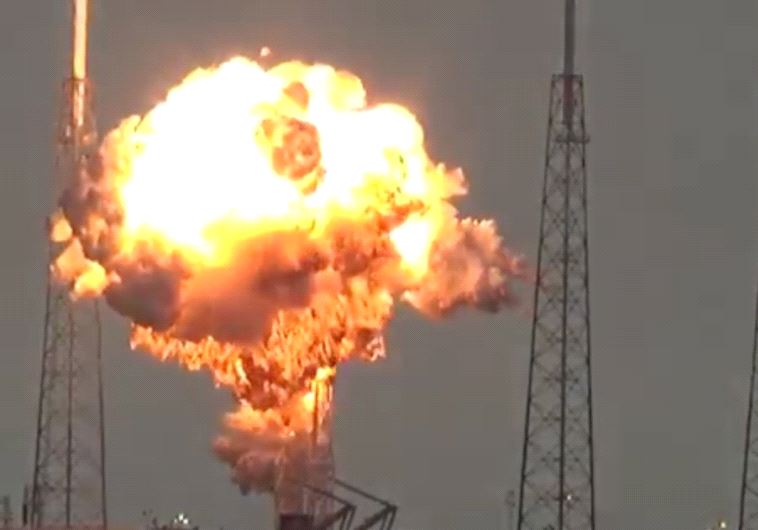Israel’s satellite industry is in crisis after a SpaceX rocket carrying an advanced Israeli communications satellite exploded on the launchpad at Cape Canaveral, Florida last Thursday 1 September. The accident (which occurred as SpaceX was fuelling its rocket for a prelaunch test) and the subsequent loss of the Israeli-built satellite has been described as a “crushing blow” to Israel Aerospace Industries (IAI), from which it is uncertain it can recover.
Crown jewel of satellites
The destroyed Amos-6 satellite – developed for the Israeli company Space Communications Ltd (Spacecom) by IAI – was the largest and most sophisticated communications satellite built in Israel’s history; a piece of technology worth between US$200 – $300 million and considered the ‘crown jewel’ of Israeli satellites. Expected to be operational for 16 years, the spacecraft would have provided services to Israeli telecommunications networks (replacing the old Amos-2 satellite) as well as to the company Facebook – who had leased the satellite’s broadband services to expand internet access across sub-Saharan Africa.
This represents a significant setback for Israel’s space program: according to the head of the Israel Space Agency, Yitzchak Ben-Yisrael, if Spacecom chooses to order a new satellite (which is not assured), it would take “between two to three years to fill the gap” left by the Amos-6. A successful launch, however, would have provided Spacecom with US$100 million in earnings from Facebook and US$164 million from the Israeli government. Spacecom has since indicated that it will receive approximately US$205 million in damages from IAI, the satellite’s developers, and is looking to claim either US$50 million or a free flight from SpaceX as compensation for the satellite’s destruction.
The explosion has already impacted Spacecom’s stock – the Israeli business newspaper Globes reported that the company’s share price declined by close to 9% immediately following the accident and has tumbled another 34% since.
Read the full story from Australia-Israel Review.

